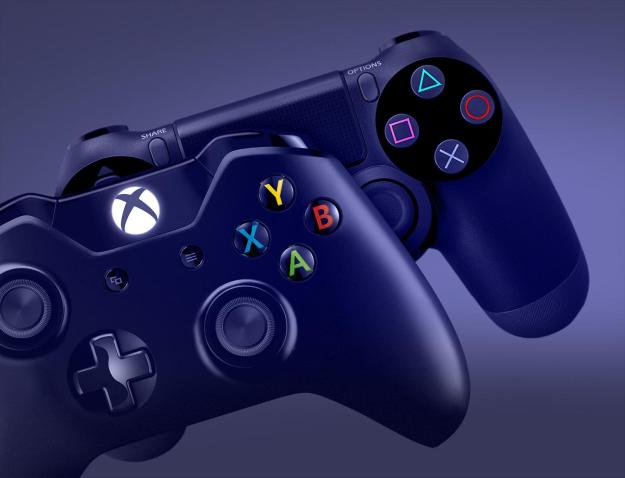
Google is reportedly in active development on an Android-powered video game console, according to “people familiar with the matter” that have spoken with The Wall Street Journal. The gaming device is said to be one of several secret projects that the Internet giant has in the works, as it seeks to push the Android software out beyond the smartphone and tablet space.

Google is also reportedly developing a wristwatch powered by Android, and it continues to work on a more cost-effective version of its canceled Nexus Q media-streaming box. The WSJ report amounts to a big infodump of alleged Google R&D secrets that you can read more about in our report right here. This rundown, however, is all about the games.
Assuming the sources are accurate and a Google gaming system is on the way, the most obvious possibility is a device on the level of Ouya, GameStick, or even Nvidia’s upcoming Shield handheld. Google understands the importance of delivering value to the budget-minded consumer. It’s why the Nexus Q release was canceled, it’s why the Chromebook shoots for affordability over power.
That said, is slapping the Google brand on yet another port-ridden techbrick enough to lure customers away from existing options?
Ouya stands apart in a lot of ways, since it doesn’t natively connect to any storefront other than its own. Google Play and Android Market users are effectively cut off from accessing the already extensive Android-based gaming library until some enterprising programmer delivers a hacked OS. That’s only a matter of time, sure, but most consumers – particularly the less tech-savvy ones – aren’t going to bother. GameStick, Shield, and their various (and increasingly numerous) competitors offer a product that is more in line with Google’s likely course. The rumored game console and the revised Nexus Q may even be one and the same.
The sphere-shaped device was designed specifically to deliver Google Play content to your television, but the $299 price – a full $200 more than the competing Apple TV – led to a canceled release. So what if the updated Nexus Q turns out to be more than a media-streaming box?

The push for living room entertainment providers right now is to cram everything you like into a single piece of hardware. The PlayStation 4, the Xbox One, and even the Wii U are all built to integrate with your cable television service, and they all offer various supporting entertainment apps that have nothing to do with video games. In some cases, as with YouTube, it’s a situation where you have content streaming in from key Google assets. The would-be console-maker’s ability to cut out the middleman could offer any number of unforeseen advantages in terms of presentation and accessibility.
Such a move would certainly make sense, with Google catering to Android’s budget-minded audience in a way that still expands in new directions. There are even opportunities to innovate using tools that the competitors simply don’t have access to. Say a Google game console launched with games featuring built-in support for Google Glass. Gamers typically play an important role in helping to push developing tech out toward the mainstream, and Glass could potentially bring some inventive ideas to interactive experiences.

If you’re willing to consider an even wilder bit of speculation: what if Google cracks open the checkbook and pays out some exorbitant sum to purchase a promising piece of technology that’s already out there and threatening to make a big splash? Can the company make an offer high enough to convince the folks at Oculus VR to become a wholly owned subsidiary, thus ensuring the Oculus Rift’s Android exclusivity? There’s nothing even hinting that such a thing might happen, and it seems an unlikely turn of events… but what if?
The point here is that Google is going to find itself competing in a crowded space if it simply slaps a familiar logo on yet another Android-powered gaming device. There needs to be a hook, something that sets the new machine apart as distinctly Google. It might be something as simple as a rock-bottom price tag. Or it might be some new tech, or added convenience, that just makes the whole setup more palatable as a one-stop solution for your entertainment needs. Whatever happens, you can bet that Google’s R&D types are already weighing these possibilities, and trying to come up with the best answer that fits the company.
Editors' Recommendations
- Every rumored video game console: Nintendo Switch 2, PS5 Pro and more
- I have a problem, but it took seeing myself in a video game to face it
- Google loses landmark antitrust lawsuit against Epic Games
- How we test video game consoles
- With Valiant Hearts: Coming Home, Netflix finds its video game voice


